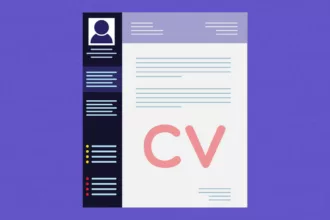We know it can be really hard to stand out in job applications, especially when you’re in the early stages of your career. Let’s not forget the age-old problem of needing experience to get experience. There are a few things you can do to stand out and get noticed by your potential employers. Check out our top 5 things that employers are looking for in your CV.
1. Work experience
Work experience takes up the most space in a CV, so it’s really important to make sure it is relevant for the role you’re applying for. As a general rule, do not include a part-time job you had as a teenager if you have more relevant experience. Your CV should be no longer than two A4 pages and include around 5 different job titles.
If you are in the early stages of your career, try to get some experience under your belt that you can shout about. You can contact companies in your local area and ask to shadow from them for a week or so. By putting yourself out there, you will expose yourself to many more opportunities.
Make sure to add specific achievements in each job description including things like increasing sales, winning awards and introducing something new to the team. Make this description more powerful by describing what the positive result was that you established in this role instead of just listing your duties. Add some figures in there if you’d like to go the extra mile, for example ‘I was responsible for Social Media execution and increased Facebook followers from 12,500 to 18,000.’
2. Good grammar
Your CV is the first impression a recruiter or employer gets of you, so it should not have any spelling or grammar errors. A CV full of mistakes can give the impression that you didn’t care to put much effort into your application. Spell check is great way to avoid mistakes. You can also get a teacher, parent, mentor or friend with a good eye for grammar to check it over for you.
A cleverly structured and well-presented CV is always a winner. When structuring your CV, remember that employers are more likely to read through CVs when they scan quickly for key points, so try to avoid dense areas of text in favour of quick-fire points.
3. Professional qualifications
Although academic qualifications are great to have on your CV, your qualifications don’t have to exclusively be your degree, A-Levels or GCSEs. Showing your learning and growth within the industry regardless of your age or experience is very valuable, so any qualifications you have should be included. This could include any online courses you’ve completed, such as FastFutures, or a seminar you attended.
If you don’t have much to write about, there are always online courses you can take to make further steps in your career. To help give you a head start, here at FastFutures we offer a free 12-week business skills programme for young people aged 18 to 24. Throughout the programme, you’ll learn the practical skills employers really need, and you’ll build your confidence and your network by diving into data, marketing, finance, innovation and teamwork.
4. Your goals
The CV personal statement is a key element as it’s the first thing your potential employer will read. This summary includes your experience, education and what you’re looking for. Remember that employers tend to skim through a CV quite quickly, so your summary should be kept brief and give the reader a quick glimpse into you as a candidate.
This section should always be as relevant as possible to the job you’re applying for, so if there are any keywords in the job description, make sure to include them here too. Stick to 3 to 5 lines and try to avoid using first or third person. For example, “Accomplished digital marketing specialist with 2 years’ experience specialising in social media management. London-based seeking a content management role”.
5. Originality
Finally, be original. To help you stand out from hundreds of other applicants, try to make your CV as unique as possible. Think about your strengths and how they make you different. If you have any hobbies that may be relevant to the role, include them.
A key takeaway is to avoid any cliches. This includes sentences like ‘I have excellent communication skills’ or “a great team player” as these are mentioned all the time and will not get you noticed.
Remember to always keep you CV fresh by updating it each time you complete a new course or gain a new skill. If you are looking seize control of your future, check out Fledgelinks Future-proof You personal development workshops to boost your CV. The on-demand work readiness workshops will leave you feeling more productive, knowledgeable, and confident about yourself and your skills.
